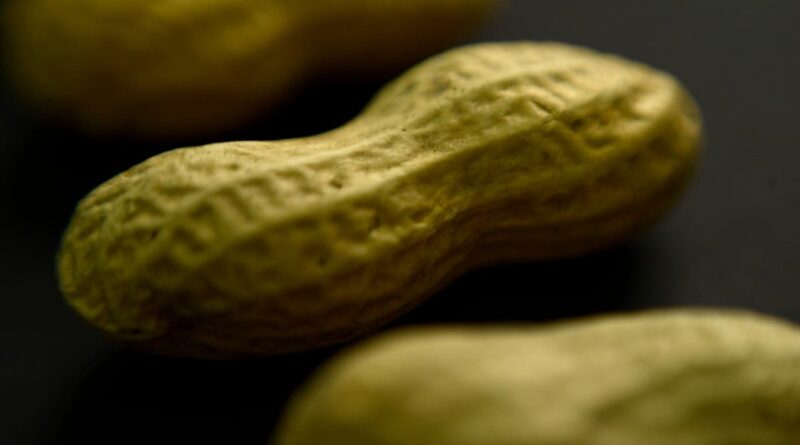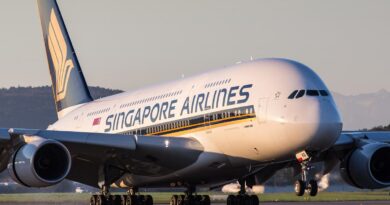Experts issue urgent warning for anyone flying with a nut allergy
Your support helps us to tell the story
This election is still a dead heat, according to most polls. In a fight with such wafer-thin margins, we need reporters on the ground talking to the people Trump and Harris are courting. Your support allows us to keep sending journalists to the story.
The Independent is trusted by 27 million Americans from across the entire political spectrum every month. Unlike many other quality news outlets, we choose not to lock you out of our reporting and analysis with paywalls. But quality journalism must still be paid for.
Help us keep bring these critical stories to light. Your support makes all the difference.
Nut ban announcements on flights are “unlikely to be effective” and may even be more dangerous to people with nut allergies, experts have said.
People with allergies should not be worried about the spread of allergens through aeroplane air conditioning systems, the academics said.
But they should ask to be allowed to board first so they can clean their seat area.
About 2–3% of children and 1–2% of adults in the UK have a food allergy.
Researchers warned that allergenic food is “really sticky” and can be found in seat areas – including seats, tray tables or screens.
Therefore passengers with nut allergies, or their carers, should be given extra time to ensure that their seat area is clean to avoid “accidental reactions”.
Experts from Imperial College London and Aviation Medical Consultancy said that there is a common perception that peanut or tree nut particles can be transmitted through aircraft ventilation systems.
To examine the perception, they conducted an analysis of studies on nut particles travelling through ventilation systems.
Their analysis, published in the journal Archives of Disease in Childhood, concludes that research studies, including aircraft simulations, show “no evidence to support airborne transmission of nut allergens as a likely phenomenon”.
“Announcements requesting nut bans are not therefore supported, and may instal a false sense of security,” researchers wrote.
Airlines should instead give people with allergies “pre-boarding” so they can wipe down their seat area, they added.
But the authors said that people at risk of a severe allergic reaction – also known as anaphylaxis – should carry two pre-filled epi-pen devices at all times – including when flying.
And airlines should consider including a separate supply of “general use” adrenaline autoinjectors.
Professor Paul Turner, clinical professor in anaphylaxis at Imperial College London, said: “People shouldn’t be worried about what food is being transmitted in the air when they fly.
“We didn’t find any evidence that nut particles could travel through the cabin ventilation system on airplanes and cause reactions. On top of that, the vast majority of people with food allergies don’t react to the smell of food, even if they are allergic to very small amounts.
“The one thing people must do to protect themselves is to clean their seat area.
“Allergenic food is really sticky, and can be found on seat surfaces, table tops, and seat-back entertainment screens. People touch these surfaces, and then the allergens can be transferred to their mouths.
“If food-allergic people can board first, and have time to clean their seat area with something like a baby wipe or antibacterial wipe, they are much less likely to have accidental reactions.”
He added: “We’re having discussions with a number of major airlines as well as patient groups and anaphylaxis charities, to see if we can get some consistent changes in airline policy across airlines operating out of the UK and internationally, to reflect what the evidence is and really make a difference to food-allergic passengers.”
Researchers were commissioned by the Civil Aviation Authority to do a report on the risks of flying for people with food allergies.
The first part of the report, published last year, concluded that people with allergies are much less likely to have a reaction on board a plane compared to when they are on the ground.
Now the second part of the report has concluded that reactions to aerosolised (in the form of airborne particles) foods are “very uncommon”.
The researchers said that peanut allergens can be detected at low levels in the air when shelling nuts, but the dust settles quickly and can only be detected in close proximity to the nuts.
But peanut residue can be found on aircraft surfaces “usually due to consumption of peanut on prior flights” and this residue “may be transmitted to the hands and then transferred either to food being consumed or directly to the individuals mouth/face”.
The authors wrote: “Given the above findings, announcements asking all passengers to refrain from eating nuts are unlikely to be effective in protecting nut-allergic passengers, since the amount of peanut residue present in the aircraft cabin will mostly depend on whether peanut was eaten on previous flights.
“Unless aircraft cabins are always nut-free, there might be nut residue present, but at levels that pose negligible risk in terms of airborne transmission.”
The authors called for all airlines to have “clear policies relating to food allergies which are easily available from their websites or on request” to provide reassurance to passengers with allergies.
Simon Williams, chief executive of Anaphylaxis UK, added: “A key take-home message is the importance of passengers cleaning their seat area, including the tray table and the seat-back entertainment system.”




